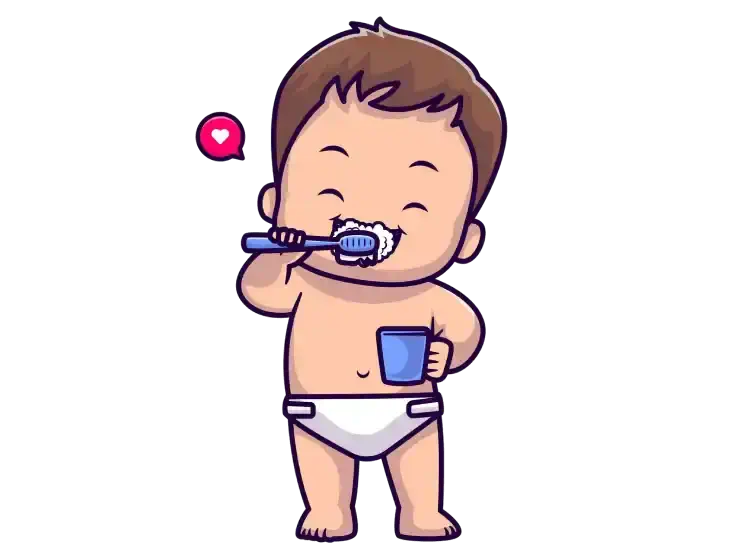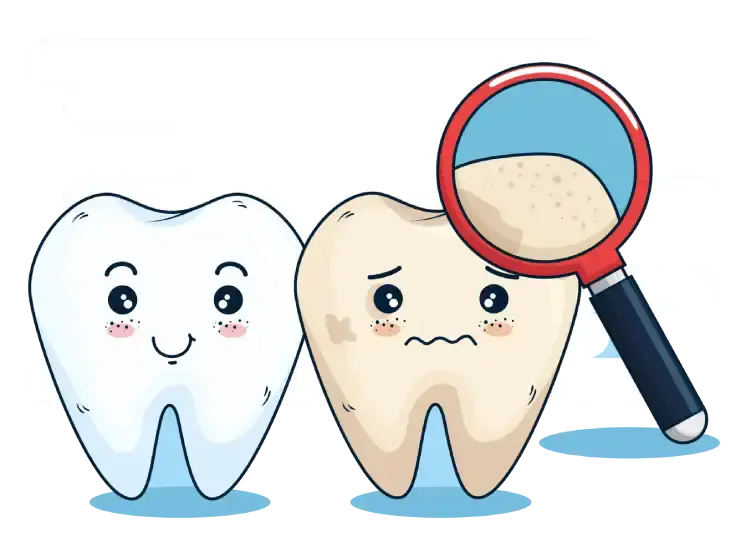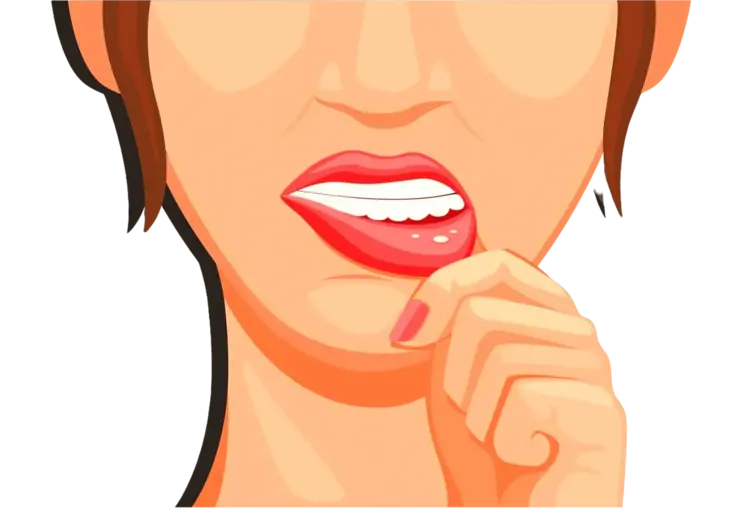Myth Buster:
Does Breastfeeding Really Cause Cavities?
Last Updated: June 24, 2025
🕒 4 min read
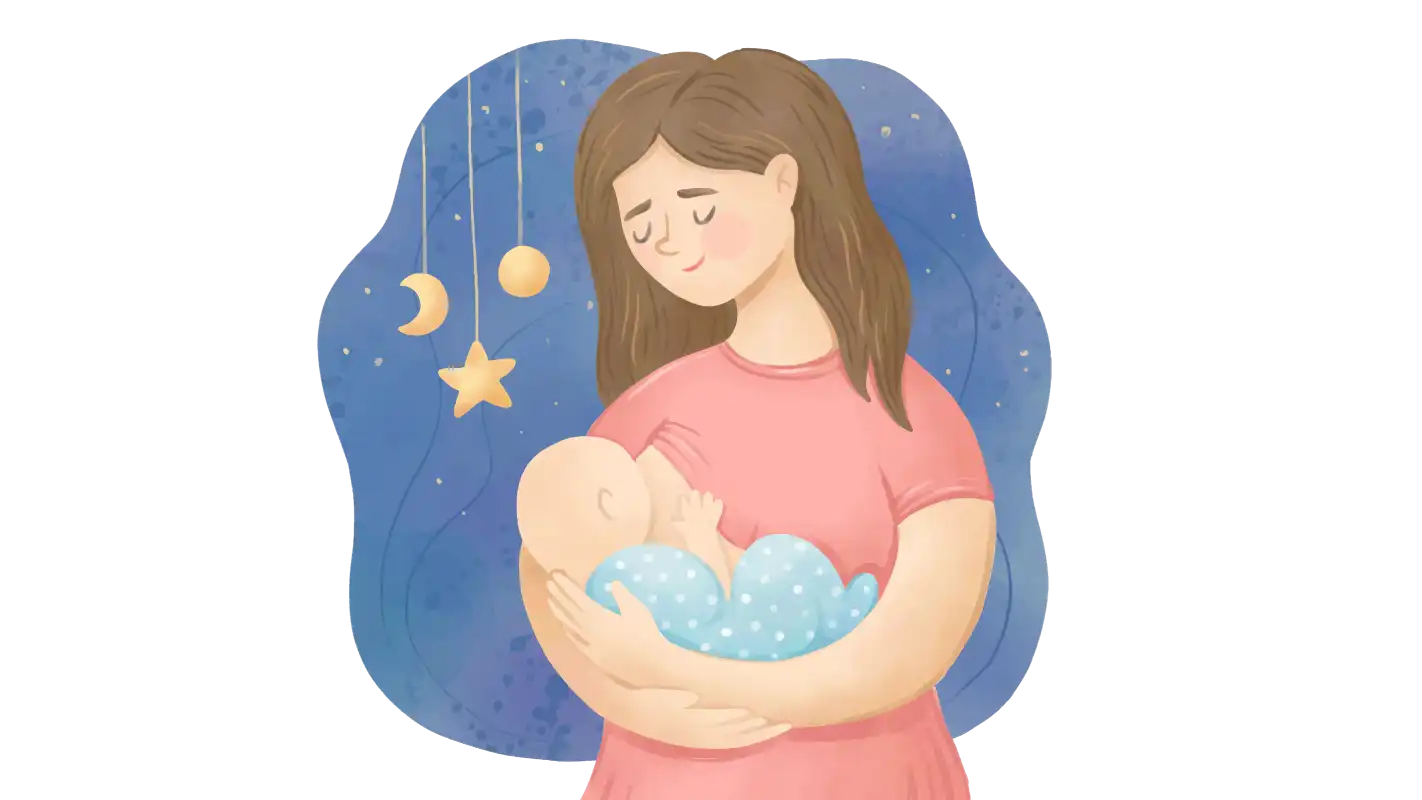
✅ Short Answer
No — breastfeeding does not cause tooth decay.
This myth is often heard in dental offices, where parents worry that breastfeeding will lead to cavities in their child’s milk teeth.
The real reason this myth even exists is that many children’s diets contain sugars that are often hidden (like in bottles or snacks). When it’s combined with children’s sensitive milk teeth structure, it can lead to cavities.
In contrast, breast milk helps prevent tooth decay.
It contains antibodies that fight the bacteria that cause cavities.
And the act of breastfeeding naturally moves milk to the back of the mouth where it’s swallowed, not pooled on teeth.
❗Breastfeeding is beneficial for many aspects of a child’s general health, so please don’t stop breastfeeding due to this myth.
🤔 Why This Myth Happened
First baby teeth come between 6 and 12 months of age, and all 20 of them are present by the age of 3.
At the same time, between 6 and 12 months of age, many children start eating solid foods and drinking from bottles or sippy cups,
which can introduce sugars to their diet.
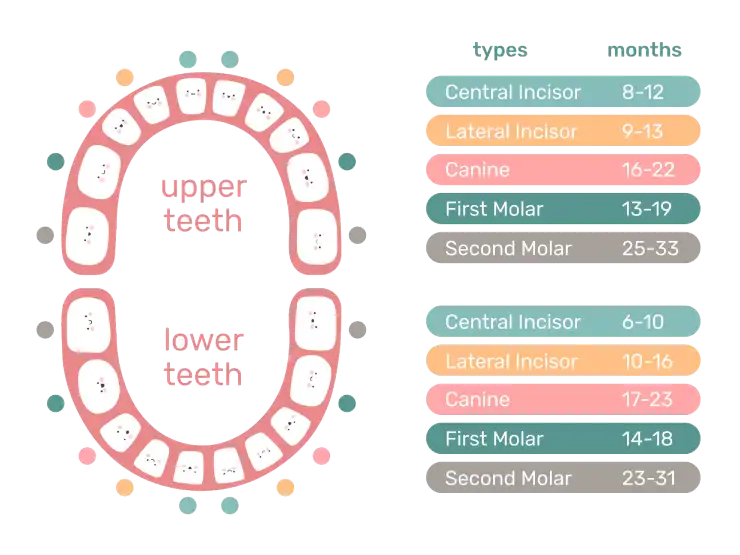
Milk teeth are softer and more prone to decay than permanent teeth, especially when they first appear in the mouth. They need to go through a process of mineralization.
So in the first months after they appear, they are more vulnerable to decay due to the poor mineral structure, especially when exposed to sugars.
Since breastfeeding can last up to 2 years or more, and in most cases it lasts at least 1 year, we now have these 3 factors combined:
- Age of first teeth: 6-12 months
- Introduction of solid foods and sugars: 6-12 months
- Breastfeeding duration: 1 year and more
This combination can lead to the misconception that breastfeeding could be the cause of cavities.
When in fact, 99% of the time, it’s the diet that contains sugars, and often they are hidden.
👎 Why This Myth Is Wrong
Let’s go back — way back—to prehistoric times, when there were no bottles, pacifiers, or baby food aisles.
Breastfeeding was the only way to nourish infants, and yet, when researchers examined prehistoric skulls.
They found very little evidence of tooth decay in babies and toddlers.
So what changed?
🍭 Sugar — The Main Suspect
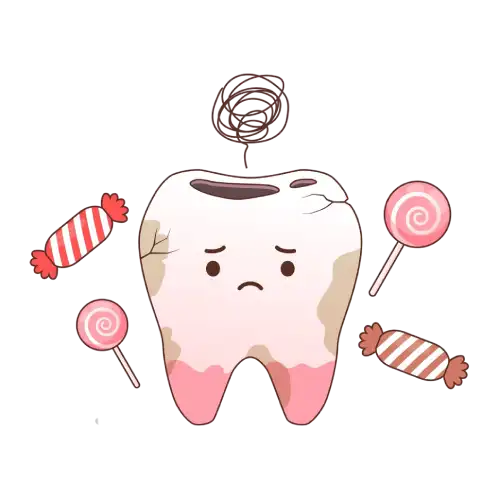
The big difference between then and now is our modern diet, filled with sugars — often hidden sugars — in nearly everything we eat or drink.
From juices and yogurts to sauces and “healthy snacks,” it’s a sugar overload.
Even “baby-friendly” foods are often sweetened, which feeds the bacteria that cause cavities.
It’s not breast milk causing the problem. It’s what comes with it.
🍼 The Bottle Factor
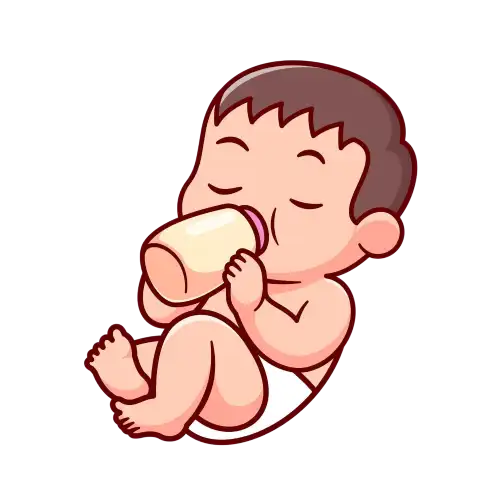
When babies drink sugary drinks from a bottle, especially at night,
the liquid pools in the mouth and clings to the teeth, feeding bacteria for hours.
That’s very different from breastfeeding.
During nursing, the baby’s tongue creates a seal, and milk shoots directly to the back of the mouth, triggering a swallow reflex. So the milk doesn’t sit around the teeth.
🧬 Breast Milk Protects, Not Harms
Yes, breast milk contains lactose, a natural sugar, but it also comes with its defense system:
-
🛡️ Lactoferrin – Fights bacteria by depriving them of iron
-
🧪 Immunoglobulins (antibodies) – Target harmful microbes
-
💧 Enzymes and bioactive compounds – Help maintain healthy oral flora
This combination not only nourishes the baby but also actively protects against infections, including those that lead to tooth decay.
🧠 A Quick Thought Experiment

If breastfeeding caused cavities, then all mammals would have serious dental problems, right? But that’s not what we see.
Mammals evolved to breastfeed, and their biology works in harmony with it.
It simply doesn’t make sense that something so natural — something we’ve done for so many generations—would suddenly become harmful.
Unless we add something unnatural to the mix.
And in today’s world, that something is usually sugar.
So the real problem isn’t breast milk — it’s everything else we put into baby bottles and snack packs.
🪥 Tips to Prevent Tooth Decay While Breastfeeding
🚫 These points are crucial to stay away from:
- Don’t let a child sleep with a bottle of sweetened milk, sweetened tea, or juice.
- Avoid sugary snacks - especially the one that melts in the mouth for a long time, like lollipops or bonbons.
- Avoid sugars before bedtime - during the night, saliva production decreases, and the mouth becomes drier, which means that any sugars left on teeth can cause more harm.
- Don’t dip pacifiers in honey or sugar.
🤓 It’s not about how much sugar a child eats but about the frequency of exposure to it.
In other words, for example, it is better to eat a chocolate bar at once than to nibble on it throughout the day.
✅ Instead, focus on these positive practices:
- Breastfeed on demand: Continue breastfeeding as long as you and your child are comfortable, ideally for at least the first year.
- Introduce solid foods wisely: Ensure your child eats a variety of foods, including fruits, vegetables, and whole grains, to support overall health and dental health.
- Offer water or unsweetened milk instead of juices or sweetened beverages.
- Practice good oral hygiene: Wipe gums with a clean, damp cloth after feedings, and brush teeth with a soft toothbrush as soon as they appear.
- Regular dental check-ups: Start visiting a pediatric dentist by the age of 1, or sooner if you have concerns.
✅ Bottom Line
Breastfeeding is not only safe for babies’ teeth — it can be protective,
especially when combined with good oral hygiene and a healthy, low-sugar diet.
The myth that it causes tooth decay misplaces the blame and distracts from the real issues behind early childhood cavities.
So please, don’t let this myth stop you from breastfeeding.
Breastfeeding is a natural, beneficial practice that supports your child’s health in many ways, including
their dental health.

Author: DMD Alexander K.
